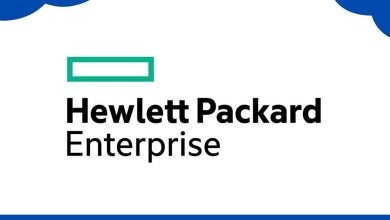Oracle (ORCL) Stock Dips From All-Time Highs Following Announcement of Major U.S. Government Cloud Deal

Oracle Corporation (ORCL) shares pulled back from recent highs in today’s trading session, even as the company announced a landmark agreement to provide its cloud and database services to the U.S. government at a significant discount. As of 11:41 AM EDT, the stock was trading at $233.98, a decline of 1.41% or $3.34.
The News: A “Landmark” Government Agreement
The General Services Administration (GSA) revealed a deal with Oracle that offers U.S. government agencies a 75% discount on the company’s license-based technology. This agreement, which runs through November 2025, provides access to advanced data management technology, including Oracle Database 23ai running on its cloud infrastructure (OCI).
Oracle CEO Safra Catz expressed enthusiasm, stating the company was “thrilled” to help update the country’s technology and that the use of AI through Oracle’s cloud would enable government agencies to “do more while spending far fewer taxpayer dollars.”
Acting GSA Administrator Stephen Ehikian hailed it as a “landmark agreement,” crucial for the administration’s push to modernize federal systems with cutting-edge commercial tech. The deal is part of the GSA’s “OneGov” program, which leverages the purchasing power of the entire government to secure better pricing, with similar deals already in place with companies like Google (GOOGL), Salesforce (CRM), and Adobe (ADBE).
Today’s Trading Activity and Market Reaction
Despite the seemingly positive news of securing a large-scale government partnership, the market reacted with a sell-off. The stock, which closed at an all-time high last Thursday, experienced a sharp drop right at the market open, plunging to a day’s low of $229.50 before beginning a slow recovery.
This “sell the news” reaction could be attributed to several factors:
-
Profit-Taking: With the stock up roughly 40% this year and trading near record highs, investors may be using the news as an opportunity to lock in substantial gains.
-
Margin Concerns: A 75% discount, while securing massive volume, could be perceived as impacting the company’s high-margin business model.
-
Valuation Check: The 1-year analyst target estimate for Oracle is $215.22, significantly below its current price, suggesting some in the market already view the stock as overvalued.
Key Stock Metrics:
-
Day’s Range: $229.50 – $235.25
-
52-Week Range: $118.86 – $237.99
-
Market Cap (Intraday): $657.379B
-
P/E Ratio (TTM): 53.93
Should You Buy or Sell ORCL Stock Today?
For Short-Term Traders: The stock is caught between the bullish news of a major government contract and the bearish price action. The volatility creates opportunities, but the resistance at pre-drop levels (around $237) appears strong. The key will be whether the stock can find support and build on its mid-day recovery.
For Long-Term Investors: The GSA deal is a strategic win, cementing Oracle’s position in the lucrative government sector and boosting its cloud narrative. However, this must be weighed against the stock’s high valuation and the steep discount offered. The drop could be a buying opportunity for those who believe in the long-term cloud growth story, but a warning sign for those concerned about the current stock price relative to analyst targets.
Our Opinion on the Stock
Oracle (ORCL) has secured a significant long-term strategic victory, but the market is currently more focused on the stock’s lofty valuation and the immediate impact of the discounted pricing. The partnership with the U.S. government is a powerful endorsement of Oracle’s cloud and AI capabilities. However, investors are grappling with whether this future growth is already priced into a stock that has seen a massive run-up this year.
The current pullback appears to be a healthy, and perhaps necessary, consolidation. The focus now shifts to whether Oracle can translate this government-wide adoption into sustained, profitable growth that justifies its premium valuation.



